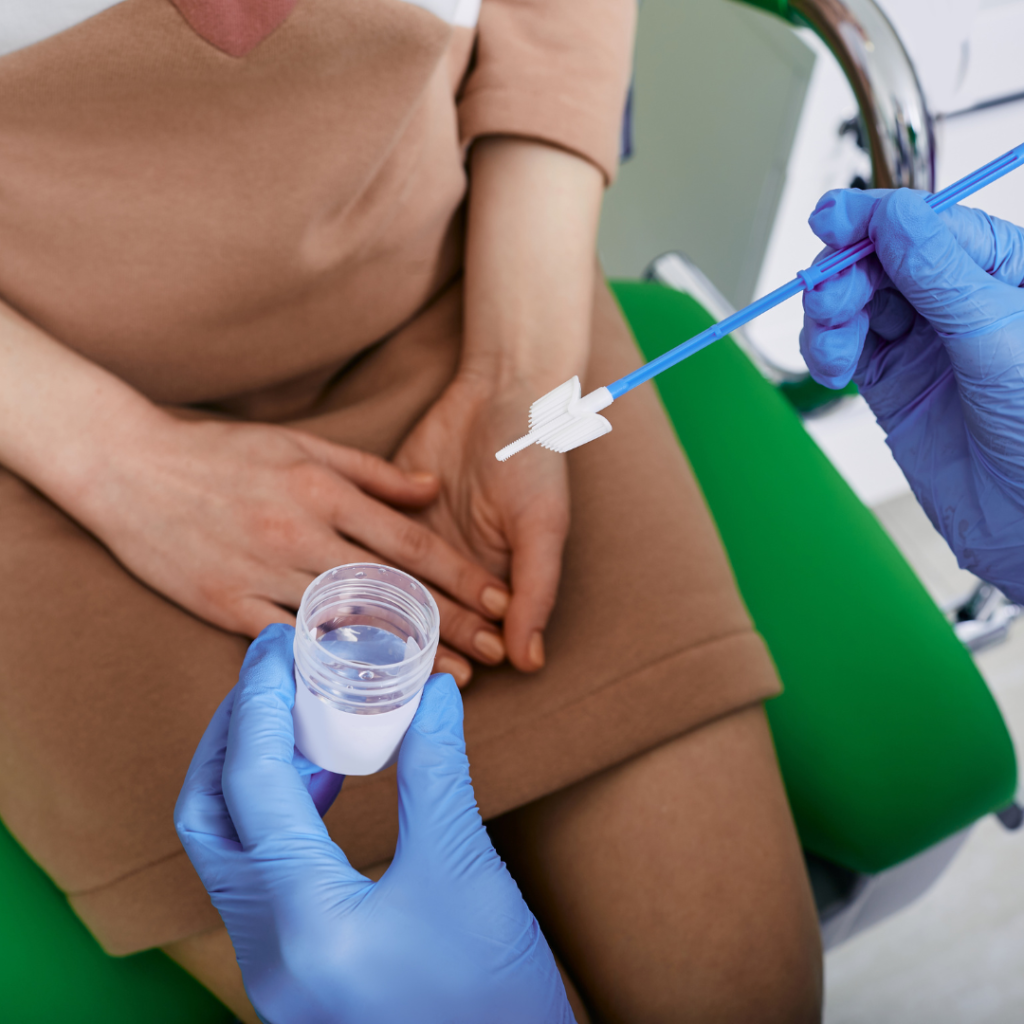Pap Smear

What is a Pap Smear?
A Pap smear is a test that checks for abnormal cells in the cervix—the lower part of your uterus. Detecting abnormal cervical cells early allows us to treat them before they can turn into something more serious, like cervical cancer. Early detection is key to prevention, and that’s what makes the Pap smear such a powerful tool in women’s health.
Why is a Pap Smear Important?
The main reason for having a Pap smear is to screen for cervical cancer. Regular Pap smears can help us detect abnormal cells before they develop into cancer. The earlier we find these changes, the easier they are to treat.
Pap smears also help identify HPV (human papillomavirus), a common sexually transmitted infection that can lead to cervical cancer. Knowing your HPV status allows you to take steps to manage your health effectively.
When Should You Get a Pap Smear?
- Age 21-29: Women should start getting Pap smears at age 21 and continue every 3 years if results are normal.
- Age 30-65: If you’re between 30 and 65, a Pap smear combined with an HPV test is recommended every 5 years (or a Pap test alone every 3 years).
- 65 and older: After 65, if you’ve had several normal Pap tests in a row, you may be able to stop testing altogether. Of course, this depends on your specific medical history, so it’s best to talk to your doctor.
Note: Even if you’ve had the HPV vaccine, Pap smears are still important. The vaccine protects against many types of HPV, but not all.
How is a Pap Smear Performed?
During the test, you’ll lie on an exam table, and your doctor will gently insert a speculum to open the vaginal canal. A small brush or spatula is used to collect cells from your cervix. The process only takes a few minutes and is typically painless, though you may feel some mild discomfort.
The sample is sent to a lab where it’s examined for any abnormal cells. Results usually come back within a week or two.
What Do Pap Smear Results Mean?
- Normal: If your Pap smear is normal, there are no abnormal cells. You can continue with your routine screening schedule.
- Abnormal: If your results show abnormal cells, it doesn’t mean you have cancer. It may indicate dysplasia (precancerous changes) or other non-cancerous conditions. Your doctor may suggest further testing, like a colposcopy, to get more information.
FAQs about Pap Smears
Q: Does a Pap smear hurt?
A: Most women experience little to no discomfort during a Pap smear. Some may feel a slight pinch or pressure, but it’s over quickly.
Q: Can I get a Pap smear if I’m pregnant?
A: Yes! Pap smears are safe during pregnancy, particularly during the first trimester. It’s an important part of your prenatal care if it’s due.
Q: How should I prepare for my Pap smear?
A: For the best results, avoid intercourse, douching, and using vaginal creams or medications 48 hours before your test. Try to schedule your appointment when you’re not on your period.
Q: What happens if my Pap smear is abnormal?
A: Don’t panic. An abnormal result doesn’t automatically mean cancer. Further tests, like an HPV test or colposcopy, will help your doctor understand more.
Take Charge of Your Health
At My Lady Doc, we encourage all women to take control of their health by staying up to date with screenings like the Pap smear. This simple test can help prevent cervical cancer and keep you informed about your reproductive health.
If you have any questions about Pap smears or need to schedule your appointment, contact us today. We’re here to support you every step of the way.
